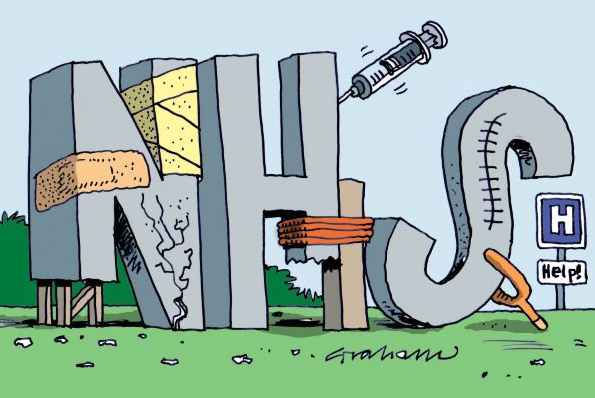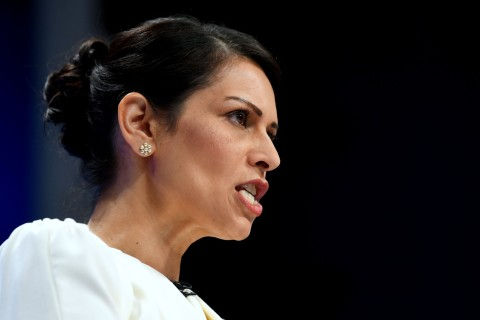Classism, the Tory party, and the demonisation of the working class.
- Akhila Bose

- Jan 3, 2021
- 4 min read
Updated: Jan 17, 2021
In the rise of the "working class aesthetic", I wanted to explore the rife classism and the portrayal of the working class in both politics and the general public. Upon exploration, the way in which the working class is represented is not only damaging but perpetuates lack of accountability for our current government to genuinely help them. Classism is truly ingrained within our society, and once exposed to the dehumanisation of the working class, it's evident that there is real resentment towards them not only in politics but by the general public.
When looking at the way the working class is demonised, we have to look back to Thatcher's government and how deindustrialisation had led to structural unemployment. Deindustrialisation arguably was accelerated by Margaret Thatcher in the 1980's and the areas hit most, is what's now known as the working class areas. The loss of heavy industry had unfortunately led to a decline in demand for engineered products, subsequently affecting the chain of supply and therefore depressed the economy. Deindustrialisation had inevitably led to impoverished areas within the UK, and unfortunately this was only exacerbated under Thatcher's government. Pre Thatcher however, the UK had faced the "winter of discontent," known to be a winter where many of the country's unions were striking over plans to limit pay rises due to inflation. This winter had devastating impacts, leaving rubbish to pile up, as well as bodies decomposing on the street due to the grave digger strikes. The Labour party's inability to deal with trade unions led to an opportunity for Thatcher and her anti-unionist approach.
Thatcher's impact on the working class was however harshly felt. Her opposition to trade unions was emulated by increasing the difficulty to strike legally. There were other rules imposed such as employers being able to sack strikers, the banning of workers striking to support others as well as making unions liable for financial penalties. Thus, as a result many factories had moved oversea's seeking cheap labour which left many factories closing in the UK. Post deindustrialisation, the jobs which were once accessible, were essentially "exchanged" for low paying, service sector jobs. These jobs which remain are not only very low pay, but they're also high in numbers of dissatisfaction from those who work there.
Anti-trade unions wasn't the only way in which Thatcher destroyed the working class. The introduction of the 'Right To Buy' scheme meant that many people weren't able to buy their own council homes. In addition to this, the numbers of people who wanted to buy their home was greater than the number of council homes being built, leaving people displaced and essentially without correct housing. Thatcher's legacy left the working class in ruins. However, it's evident that there is a trend from the Conservative party and their focus on "individualism'. This focus will continue to portray the working class as "lazy", further creating hostility towards the working class. Conservative politician's stress the idea that individuals should work to leave the working class; focusing strongly on the idea of meritocracy.
The Tory party is to be held to account for the demonisation of the working class and has historically done so to justify the economic inequality in society. The legacy post Thatcher now mirrors a political climate which places emphasis on leaving the working class, as opposed to bettering the systems in place for those who require it. Instead, the belittling and attacking of the working class is used as a reason to provide cuts to the welfare system. Media alongside Tory policies, truly disadvantage and further dehumanises the working class. Shows such as Jeremy Kyle will provide a platform to capitalise off of individual misfortunate and thus creates this caricature of the working class, which resonates with public view of them already. Not only does this perpetuate classist views, but it also creates a rise in support for policies which further disadvantages them. Therefore, these policies will remain popular due to media outlets and streams of entertainment. This only mirrors the late 19th century Tory party under Disraeli. The presentation of the Tory party under Disraeli appealed to the mass public, without acknowledgement to the deep harms that disproportionately effected the working class.
In contemporary politics today, it's clear that the working class is consistently associated with the likes of "benefit fraud", whilst the middle class can walk free of generalised views of "tax evasion". We as a society continue to shame the working class for unemployment, yet the 1.5million people in unemployment are competing for only 700,000 jobs. Instead of further demonising the working class, it is up to the public to face the reality of the injustices they faced which unfairly stains the way in which we view them. As a society, it's essential that instead of pushing the 'individualism' narrative, that we acknowledge the barriers in place which stop those from reaching higher education, accessing apprenticeships, as opposed to just service sector jobs. It's necessary to address our own views and stop shaming those in these jobs, as well as those who don't simply have access to them. It's evident that currently, the working class simply cannot win.





Comments